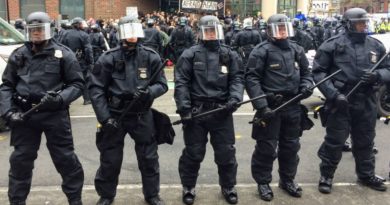Nobel laureates Make the Case for Addressing Climate Change
Nobel Prize laureates gathered in Stockholm to receive their awards took the opportunity to stress the importance of addressing climate change. Winners of the prizes in physics, chemistry and economics made the assessment ahead of next week’s presentation of the prizes. The remarks come as a global summit on climate change the COP25 takes place in Madrid.
Didier Queloz, who shared the prize in physics for his discovery of an exoplanet orbiting a sunlike star, took issue with people who shrug off climate change on the grounds that people will eventually leave Earth.
“I think this is just irresponsible because the stars are so far away I think we should not have any serious hope to escape the Earth,” he said. “Also keeping in mind that we are a species that has evolved and developed for this planet. We’re not built to survive on any other planet than this one. We’d better spend our time and energy trying to fix it.”
Esther Duflo, one of the economics laureates, cautioned that dealing with climate change “will require a change in behaviour, particularly in the rich countries” that are heavy consumers of goods and energy.
While some believe that there is no need to consume less provided consumption is fuelled by renewable energy, “it would be great if that were the case but I don’t think we can count on it necessarily,” Duflo said.
M Stanley Whittingham, who shares the chemistry award for helping develop lithium-ion batteries, said “to help solve the climate issue, the time is right now, but we have to be pragmatic. … We can’t just turn off all the CO2.”
Canadian-American James Peebles, who gets half of this year’s 9-million-kronor (USD 948,000) physics prize for studying what happened soon after the Big Bang, later told The Associated Press he is excited about the wave of youthful climate change protesters.
“I see these people in Princeton, my home town, as they go marching for control of climate. It is a wonderful thing. I love their enthusiasm, their energy, their devotion to something very worthwhile,” he said.
Whittingham also told the AP he was encouraged by the protests: “Maybe some of the young folks don’t realize how long it takes. But I go back to the Vietnam War era and the United States where it was really the young people that pushed the politicians to get out and stop that nonsense.”




